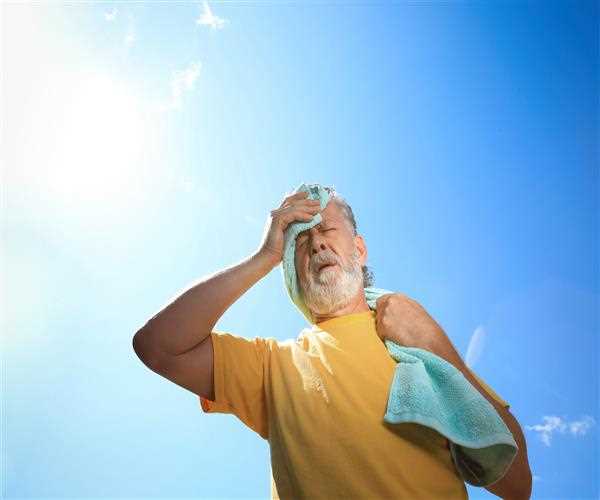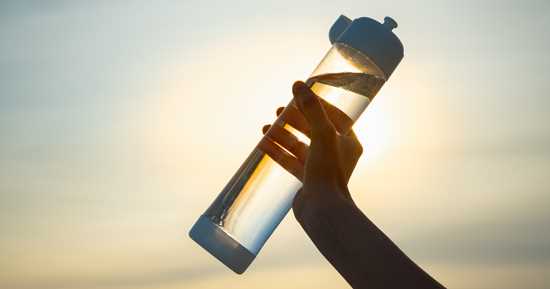
31-Jul-2023 , Updated on 7/31/2023 9:22:33 PM
How you can protect yourself from heat
Highlights
- Stay hydrated- Drink plenty of water throughout the day to prevent dehydration caused by excessive sweating.
- Wear appropriate clothing- Choose lightweight, loose-fitting, and light-colored clothes to allow better air circulation and reflect sunlight.
- Use sunscreen- Apply sunscreen with a high SPF (Sun Protection Factor) to protect your skin from harmful UV rays.
- Seek shade- Stay in shaded areas during peak sunlight hours, typically between 10 am and 4 pm, when the sun's rays are strongest.
- Limit outdoor activities- Reduce strenuous outdoor activities during hot days, especially during heatwaves.
As global temperatures continue to rise due to climate change, extreme heat events are becoming more frequent and intense. Exposure to high temperatures can pose serious health risks, such as heatstroke, heat exhaustion, and dehydration. Protecting yourself from heat is essential for maintaining your well-being and staying safe during hot weather. Let's explore various strategies and tips to help you beat the heat and safeguard yourself from its potentially harmful effects.
Understanding the Risks of Heat
Before delving into protective measures, it is crucial to understand the risks associated with excessive heat exposure. Extreme heat can be particularly hazardous for vulnerable populations, including the elderly, young children, pregnant women, and individuals with certain medical conditions. High humidity levels can further exacerbate the effects of heat on the body by hindering sweat evaporation and impairing the body's cooling mechanism.
Stay Hydrated
One of the most critical steps to protect yourself from heat is to stay properly hydrated. Drink plenty of fluids throughout the day, even if you do not feel thirsty. Water is the best choice for hydration, but you can also consume fruit juices, sports drinks, and coconut water. Avoid excessive consumption of caffeine, alcohol, and sugary beverages, as they can contribute to dehydration.

Dress for the Heat
Wearing appropriate clothing can help regulate your body temperature during hot weather. Choose loose-fitting, light-colored, and breathable fabrics that allow air circulation and aid in sweat evaporation. Wide-brimmed hats and sunglasses provide additional protection from the sun's rays and reduce the risk of sunburn.
Seek Shade and Limit Outdoor Activities
When possible, stay in the shade, especially during the peak heat hours between 10 a.m. and 4 p.m. If you need to be outdoors, try to schedule outdoor activities in the early morning or late evening when temperatures are cooler. Engage in physical activities gradually and take frequent breaks to rest and cool down.
Create a Cool Environment
At home, use fans or air conditioning to maintain a comfortable indoor temperature. Keep blinds and curtains closed during the hottest parts of the day to block out direct sunlight. If you don't have access to air conditioning, consider spending time in public places that are air-conditioned, such as shopping malls, libraries, or community centers.
Use Cooling Accessories
Cold compresses, damp towels, and cooling neck wraps can provide instant relief from the heat. Placing a bowl of ice in front of a fan can create a DIY air conditioner, circulating cooler air throughout a room. Cooling mist sprays and handheld fans are also handy tools to have when on the go.
Properly Ventilate Your Home
Ensure that your home is well-ventilated to allow hot air to escape and cooler air to circulate. If it's safe to do so, open windows and doors during the cooler parts of the day and use fans to improve airflow. This will help prevent your living space from becoming a heat trap.
Modify Your Diet
Certain foods can help you cope with heat better. Include water-rich fruits and vegetables, such as watermelon, cucumber, oranges, and lettuce, in your diet. These foods not only provide hydration but also contain essential vitamins and minerals that support your body during hot weather.

Know the Signs of Heat-Related Illnesses
Recognizing the early signs of heat-related illnesses is crucial for seeking prompt medical attention. Symptoms of heat exhaustion include heavy sweating, weakness, headache, nausea, and dizziness. Heatstroke, a more severe condition, may present with hot and dry skin, confusion, unconsciousness, and a high body temperature. If you suspect heat-related illness, move to a cooler place, hydrate, and seek medical help immediately.
Stay Informed about Weather Updates
Being aware of weather forecasts and heat advisories is essential for planning your activities. Pay attention to local news, weather apps, or websites that provide real-time updates on temperature, humidity levels, and heat warnings in your area. Knowing when heat waves are expected can help you make informed decisions about outdoor plans and take necessary precautions in advance.
Hydrate Before, During, and After Physical Activity
If you plan to engage in physical activities during hot weather, ensure you are adequately hydrated before starting. Drink water or a sports drink that contains electrolytes to replenish the minerals lost through sweating. Take short breaks during the activity to drink water and rest in the shade to prevent overheating.
Use Sunscreen
Protect your skin from harmful ultraviolet (UV) rays by applying sunscreen with a high SPF rating. Sunburn not only damages the skin but can also impair the body's ability to regulate its temperature. Apply sunscreen generously and reapply it every two hours, especially if you are sweating or swimming.
Avoid Hot Vehicles
Never leave children, pets, or anyone inside a parked vehicle during hot weather. The temperature inside a parked car can soar to dangerous levels in a short period, even with windows cracked open. It only takes a few minutes for heat-related injuries or fatalities to occur. Always lock your car when parked to prevent children from entering without your knowledge.
As temperatures continue to rise, protecting yourself from heat becomes paramount. By staying hydrated, dressing appropriately, seeking shade, and being mindful of your outdoor activities, you can reduce the risk of heat-related illnesses. Additionally, creating a cool environment, using cooling accessories, and modifying your diet can further aid in combating the heat's effects. Stay vigilant and be mindful of the signs of heat-related illnesses to ensure your safety and well-being during hot weather. Remember, preparation and prevention are key to enjoying the summer months while staying cool and healthy.

SEO and Content Writer
I am Drishan vig. I used to write blogs, articles, and stories in a way that entices the audience. I assure you that consistency, style, and tone must be met while writing the content. Working with the clients like bfc, varthana, ITC hotels, indusind, mumpa, mollydolly etc. has made me realized that writing content is not enough but doing seo is the first thing for it.
Join Our Newsletter
Subscribe to our newsletter to receive emails about new views posts, releases and updates.
Copyright 2010 - 2026 MindStick Software Pvt. Ltd. All Rights Reserved Privacy Policy | Terms & Conditions | Cookie Policy